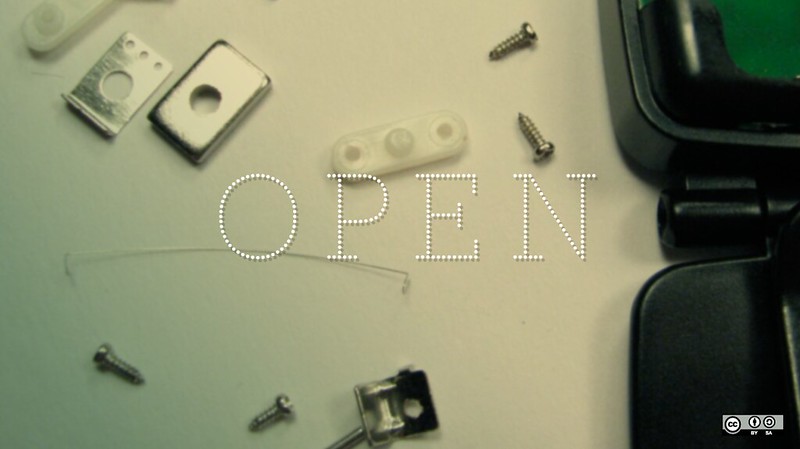Open source hardware is an emerging topic striving to come out of marginality. There is a lot of experimentation happening in grassroots communities, start-ups and academia, but only a handful of successful large-scale industrial cases. Proponents of the status quo may find many good reasons why open source hardware “wouldn’t work in reality”, mainly because it contradicts the dominant logic innovation systems build upon. Challenging these good reasons is what experimentation is about. Here are ten arguments why it is worth doing it, why there is a case for open source hardware[1] to go mainstream.
The citizen sovereignty arguments, or why open source supports individual capacity of action:
- The most cited argument is expressed in the famous quote “given enough eyeballs all bugs are shallow”. In other words, the more people can have a look, the more issues they will be able to raise (and solve). Individuals can check what matter to them and eventually take action to improve the product with its originator, leading for example to:
- Safer products. This is one aspect which is discussed in the software branch, where open source has been advocated to lead to better digital security.
- More durable products. Potential breaking points can be identified and product obsolescence openly discussed.
- Another aspect is a lower user dependence in case of product fault. Having access to technical information allows users to find solutions by themselves in case the product originator cannot provide those, whatever the reason. This supports users to extend product lifetime for economical or environmental reasons, if they wish so.
- Access to product-related documentation supports technological literacy. It provides people wanting to develop their technical skills with more cases to quench their thirst for learning or doing things on their own.
The business arguments, or why information disclosure may contribute to the prosperity of the firm:
- Opening the product development process to the participation of volunteers is a promise of either decreased R&D costs or increase of fresh and innovative ideas coming in. Better products, cheaper.
- Letting other people participate—may they be freelancers or employees of other companies—enables the emergence of an original ecosystem of stakeholders the company may not have thought working with in the first place. It may also allow identifying key talents to be hired.
- There is not always a case for protecting technical documentation from being seen and used. Actually, talking about hardware, critical IP to protect (that is, hide or patent) is generally only a small part of the information processed by companies. The overwhelming majority of products are just new versions of formerly brewed ideas. Or products may embed one original feature, the rest being just state of the art. For many products, reverse engineering (that is, copy) is pretty simple. So why not sharing the things you are not directly drawing your revenues from and eventually profiting from other things shared back by others to reduce your development costs?
The macroeconomic arguments, or why open source supports technological progress:
- Here is the “reinventing the wheel”-argument. Openness supports reusability of intellectual assets. By having access to the technical documentation of other products you can pick up the things you need in them. This is what massively happens in software development and why it is so fast nowadays. Because you just find on the internet the bits of code you need in 99% of the cases. The transparency of hardware may accelerate product development.
- The replicability of hardware implied in the definition of open source may support faster adoption of best available technologies. Inventions are not locked-in but made available, which increases the chances they will actually be provided where they are needed.
- Giving the opportunity for spontaneous voices to raise and to influence product development is actually a pretty good implementation of the concept of continuous improvement.
And, finally, the lazy argument:
- It works with software. Why not with hardware?
[1] Note: Open Source Hardware is considered here as defined by the Open Source Hardware (OSHW) Statement of Principles 1.0. Open source hardware is supposed to be at least transparent (technical documentation is available) and replicable (you have the right to produce it).
Illustration: Opensourceway, CC-BY-SA 2.0

